In 2013 we started what seems to have become an end of the year tradition. What would be the Interesting Reading Areas for the next year? As we don't like traditions for preventing thinking again, we will have another set-up this year. But first:
Most end-of-the-year lists of books consist of books that have already been read by others and many of the lists consist of the same books. Often the lists consist of the books that have topped the sales lists during the year. The underlying message could be interpreted as "if you haven't read these books, you are a cultural bar-bar, does not belong to the well-informed elite and not able to go along in conversations". Anyhow, this is passive, following main-stream media.
Another, more active approach is to make a list by your own about Interesting Reading Areas (IRA), areas of your interest for developing and knowledge acquiring. And then look for relevant writers, books and DVD's belonging to that IRA.
We invite you to make your own IRA and to find for each subject the interesting books and thinkers. This year by doing some searching at the internet for books in the categories: New Thinking.
We came across books about law, science, international relations and world institutions, as well as the mind and AI ethics. But keep in mind: we have not yet read the books, so there is a risk that it is claimed as new, hence good, while it might be boring more-of-the-same.
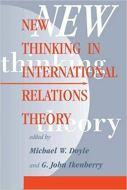
New Thinking In International Relations Theory by Michael W. Doyle, G. John Ikenberry Contributors addresses the theoretical analysis that their perspective brings to the issue of change in global politics. The volume begins with an essay on the classical tradition at the end of the Cold War. Essays explore work outside the mainstream.

Law by Designby Margaret Hagan.To build a new set of professional paths and opportunities for people who want to work in law - and especially those who see that traditional ways of being law students and lawyers do not enable them to make the positive changes in society that originally drove them into law.

Global Peace and Conflict Management: Man and Humanity in Search of New Thinking by Mahboob A. Khawaja. The book offers brilliant new thinking and powerful scholarly visions to manage complex and changing global crisis situations.
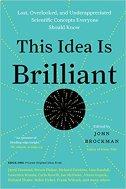
This Idea Is Brilliant: Lost, Overlooked, and Underappreciated Scientific Concepts Everyone Should Know by John Brockman. This book is almost guaranteed to make you think on a deeper level.
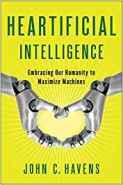
Heartificial Intelligence: Embracing Our Humanity to Maximize Machines by John Havens. The book provides the first values-driven approach to algorithmic living-a definitive roadmap to help humanity embrace the present and positively define their future.

The New Mind Readers -What Neuroimaging Can and Cannot Reveal about Our Thoughts by Poldrack, details the unique and sometimes disorienting experience of having his own brain scanned more than a hundred times as part of a landmark study of how human brain function changes over time.

Doughnut Economics - Seven Ways to Think Like a 21st Century Economistby Kate Raworth. The economics that we've inherited-largely 20th-century thinking rooted in 19th-century theory-in no way equips us to understand 21st-century challenges.
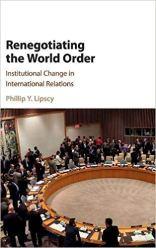
Renegotiating the World Order: Institutional Change in International Relations Hardcover by Phillip Y. Lipscy. The book offers a new theory of institutional change and explains why some institutions change flexibly while others successfully resist or fall to the wayside.

Cold Fusion Presents: New Thinking: by Dagago Altraide explores the history of human advancements, and examines the gadgets that will play big roles going forward. Dagago is a futurist. He is with a unique voice and style. Release date 14th February 2019.
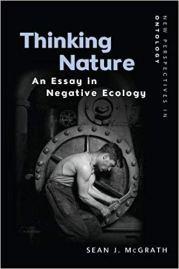
Thinking Nature: An Essay in Negative Ecologyby Sean McGrath reflection on what it means to be human in an era of climate change, mass extinction and geoengineering. Seth makes a case for a new Anthropocenic humanism founded on a reverence for nature, a humanism that is not at the expense of nature, and a naturalism that is not at the expense of the human. Release date 31 March 2019.

The Revolutionary Genius of Plants by one of the world's leading authorities, Stefano Mancuso, in the field of plant neurobiology. Neurobiology explores signalling and communication at all levels of biological organisation.
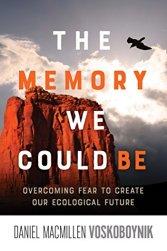
The Memory We Could Be: Overcoming Fear to Create Our Ecological Future by Macmillen Voskoboynik draws on sources from anthropology to hydrology, botany to economics, agronomy to astrobiology, medicine to oceanography, as well as physics to history. A lyrical and powerful story of our relationship with nature. Consists of three parts - past, present, and future.
At last:
Biomimicry for Young Childre n by Åsa Jomård.
Biomimicry is an exciting way to inspire young children to be creative, curious and to observe the world. Children come to understand how animals and plants can be used as a platform upon which ideas, buildings, and inventions can be developed; with the focus shifting from observing to being inspired to solve problems or to invent things.
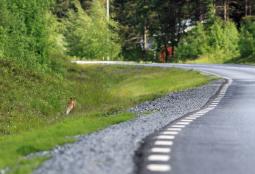
This illustrated book tells the story of two children as they observe animals and plants throughout the year. The book uses the characters' observations as a stepping stone to spark ideas as well as an introduction to the world of inventions and creative thinking.
Nature watching is a fun way to hunt for ideas and solve problems.
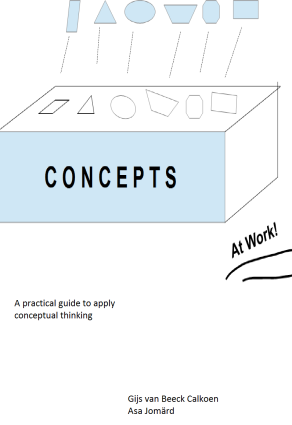
Concepts at Work . A tool for deeper insights, critical analysis and creating innovative concepts.
Concepts at Work by Gijs van Beeck Calkoen and Åsa Jomård
Concepts at Work will get you all the ins- and outs of conceptual thinking. It will make your insight in complex situations more clearly and your writing more comprehensive. It will enhance your study skills and show you how to use concepts to multiply your ideas and become more inventive.
This richly illustrated book covers various applications as to law, technology, medicine, inventions, art, architecture as well as day-to-day creativity.
